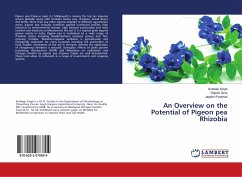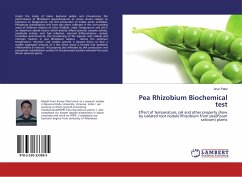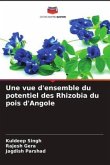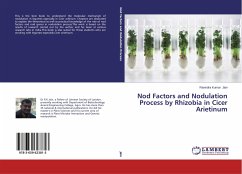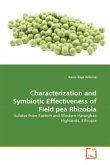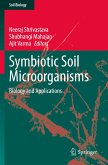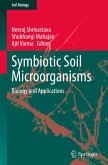Pigeon pea [Cajanus cajan (L.) Millspaugh] is among the top ten legumes grown globally, along with common beans, pea, chickpea, broad beans and lentils. More than any other legume adapted to different agroclimatic zones, pigeon pea uniquely combines optimal nutritional profiles, high tolerance to environmental stresses, high biomass productivity and most nutrient and moisture contributions to the soil. It is a tropical grain legume grown mainly in India. Pigeon pea is nodulated by a wide range of rhizobial strains including Bradyrhizobium (cowpea group) and fast-growing rhizobia. Rhizobium-legume symbiosis is agriculturally and ecologically important for many purposes including the production of food, fodder, enrichment of the soil in nitrogen, thereby the application of nitrogenous fertilizers is reduced. Synergistic effects of plant growth promoting rhizobacteria (PGPR) and Rhizobium on nodulation and nitrogen fixation by pigeon pea (Cajanus Cajan) are well documented. These traits allow its cultivation in a range of environments and cropping systems.

